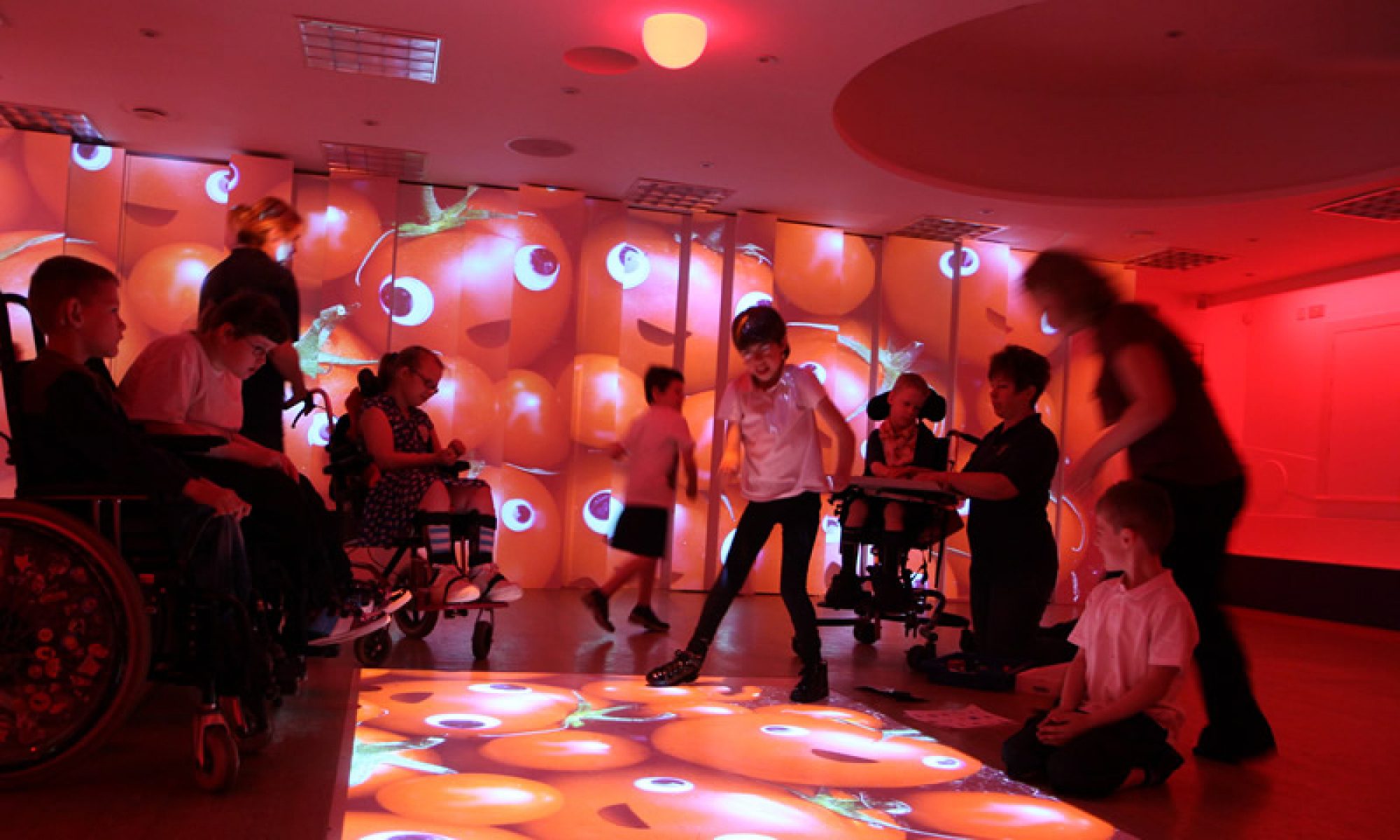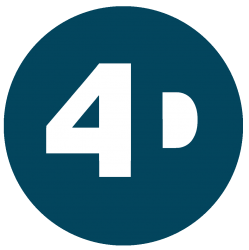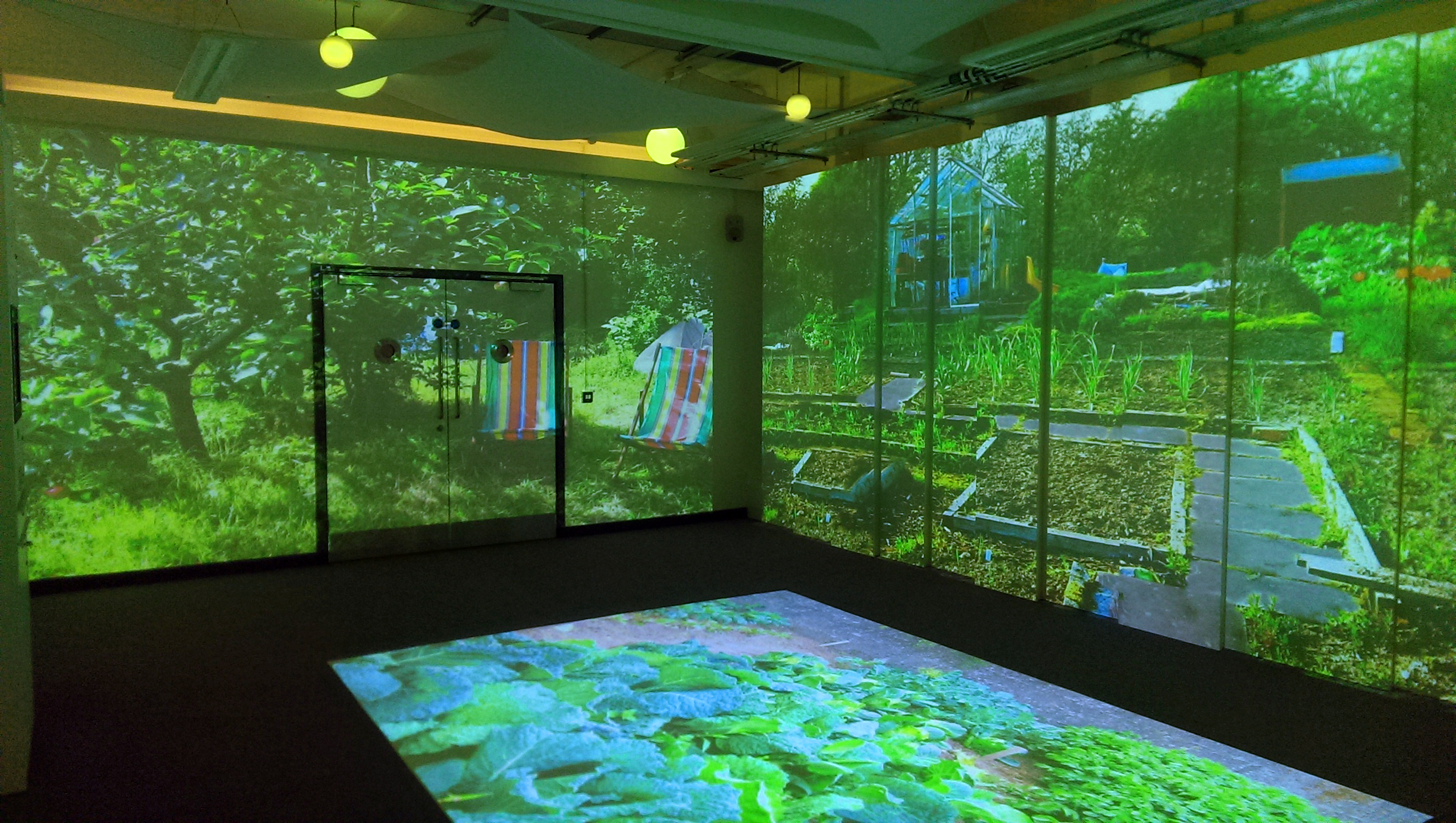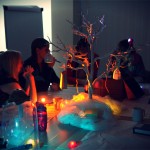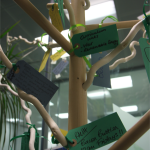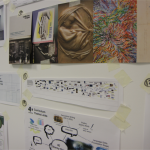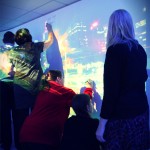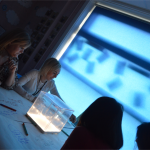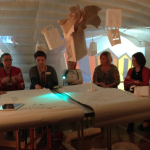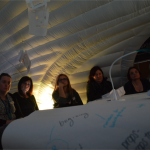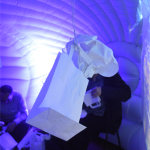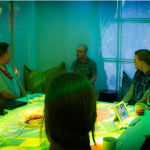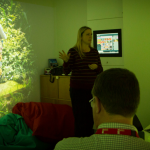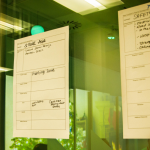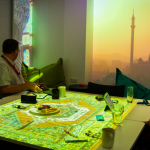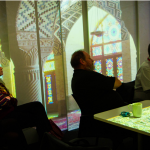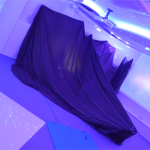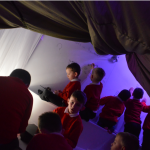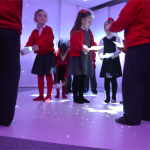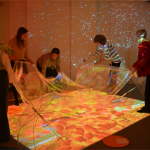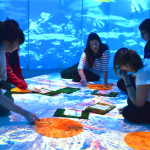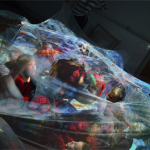
Our Training and Research coordinator Inés shares some more details on the 4D community and why we are working hard to create a network of immersive practitioners. If you’re working in an immersive space, we’d love for you to be involved. Full details are below or you can get in touch with the 4D team here.
Sharing immersive experiences
Immersive environments, by definition, are spaces that take people outside of their everyday experiences to immerse them in the creation of new worlds and perspectives. While this is what makes them so powerful, it also means that sometimes sharing or retelling an immersive experience outside of the space can be hard to do under the glare of the staffroom’s strip lighting.
As a team that all have direct experience of the education and healthcare sectors, we are aware of the many daily priorities, responsibilities and challenges that staff have to juggle. Time pressures, low resources, and limited time to get together as a team mean that sharing best practice can be difficult.
However, since we launched in 2009 we’ve seen and heard so many incredible examples of use – from using the tunnel theme to develop vowel sounds in KS3 French to integrating props with a Hansel & Gretel timeline to take young people on a journey of texture – that we knew we wanted to do something to encourage sharing of practice right across the network. This meant engaging people from our 4D champions to less confident users still exploring how to get the most out of their space.
Creative communities of practice
So, where to begin? During a masters degree, I wrote a postgrad university essay on ‘Interpreting arts participant groups as Communities of Practice’.
I had heard the phrase ‘Communities of Practice’ banded about, but to me it seemed bizarre to create a separate group and strategy for learning when learning was exactly what these arts participation sessions were about. If we are using creative means to enhance learning and collaboration for the participants, doesn’t this suggest that we could be using creativity for our own learning too?
Etienne Wenger, educational theorist and one of the most respected voices at the Communities of Practice (CoP) school, said that “learning can be the reason the community comes together or an incidental outcome of members’ interactions”. That is to say, a group may be performing as a CoP without necessarily being aware of it, whether they are catching up about a pupil’s response to a trip to the moon over lunch, or uploading a short video of their latest immersive session in the spooky forest to YouTube.
So, we were faced with a task – how can we help this informal learning across schools extend to a larger network, so more people can give and take inspiration from it, without it becoming a burden for our busy practitioners?
For us, the answer had to lie somewhere in the field of creativity.
We already know the teachers we work with are highly creative, and if creativity can be used as a teaching tool that gives more ownership to pupils, then it can also be used as a way to strengthen and develop a sense of community and sharing across practitioners or, as our friend Wenger puts it, “[create] an environment in which the value communities bring is acknowledged”.
We knew this sharing needed to be fun, lightweight and inspiring. Crucially, we also knew it had to be led not by us but by the expertise of the practitioners on the ground.
4D exchange
From this need we developed a series of regional inter-school creative network sessions called 4D exchange. 4D exchange is a regular event where teachers working in 4D immersive spaces can exchange ideas, best practice and resources with each other, in an immersive environment.
Presenters each have 5 minutes to share an overview of an idea, lesson or resource they have found particularly effective in their space. How they present this is up to them – some may take us on a mini immersive journey through their created timeline, others may bring along the props they used, whilst others will share samples of the resulting works that pupils created. We ask for very little in advance – just a brief sentence around your topic and any content you’d like us to upload, so that impact on capacity is minimum. The sessions last 90 minutes, with a break included, but you could easily replicate something on a smaller scale during your weekly staff meetings.
After the presentation there is plenty of room for discussion and hands-on experimenting in the space, followed by a chance to see new content in development, and hear some short tips and tricks from the 4D creative team. The sessions also allow us to gather feedback from our spaces to see how we can support them in the future. And, of course, biscuits are provided! We’ve found these sessions to be fun and informative and, crucially, the practitioners who attended have left inspired and full of ideas!
“Just wanted to say a big thank you for the meet up, really great to meet and hear from others who are using the spaces in unique ways, hugely beneficial.” – 4D exchange Salford participant
So what’s next?
As our community develops, we’re learning more and more about what you need to help you develop as a 4D practitioner. From cloud-based content sharing to teacher exchanges, we’re always keen to develop new resources and approaches to help the creative exchange of ideas.
Get in touch!
How do you share best practice about immersive learning across your school? Do you have any feedback or good news stories you’d like to share with us? Or would you be interested in setting up your own 4D exchange hub?
If so, we’d love to hear from you! Get in touch at ines@4dcreative.co.uk or 0844 414 2595. Welcome to the 4D community!
Our next 4D exchange is taking place on the 25th March at Kensington Community Primary School in Liverpool.
If you’d like to attend then register here http://www.4dcreative.co.uk/4D-exchange/
References
Wenger, Etienne. Communities of Practice. Learning, Meaning and Identity. Cambridge: Cambridge University Press, 1998. Print
—. “Communities of Practice. Learning as a Social System.” The Systems Thinker. June/July 1998. Web.
Soria-Donlan, Inés. Interpreting participant groups as Communities of Practice: Changing the way we look at arts participation. 2012. Web.
